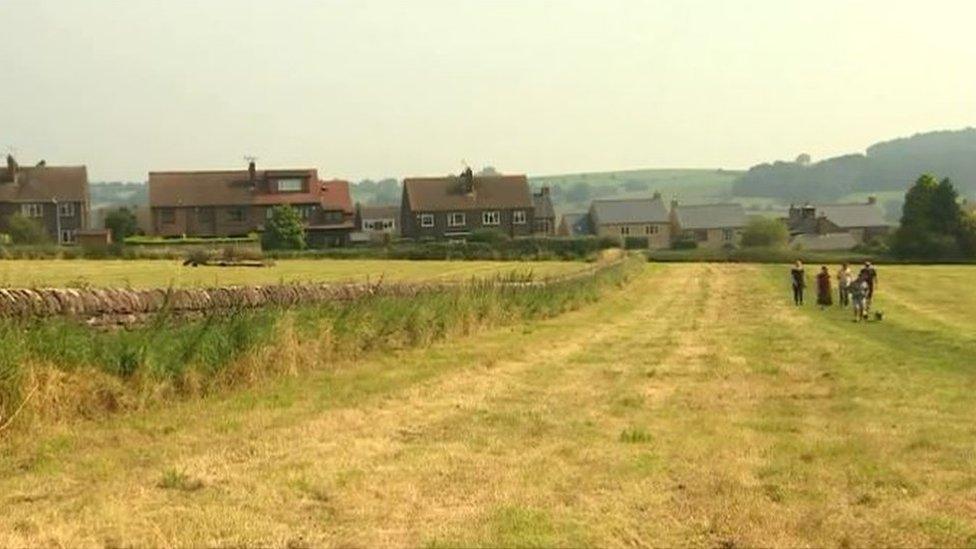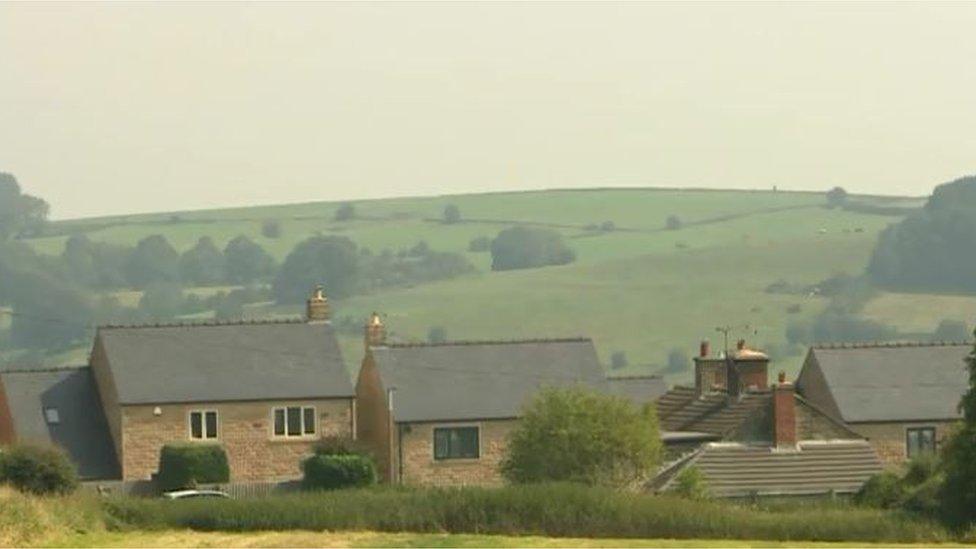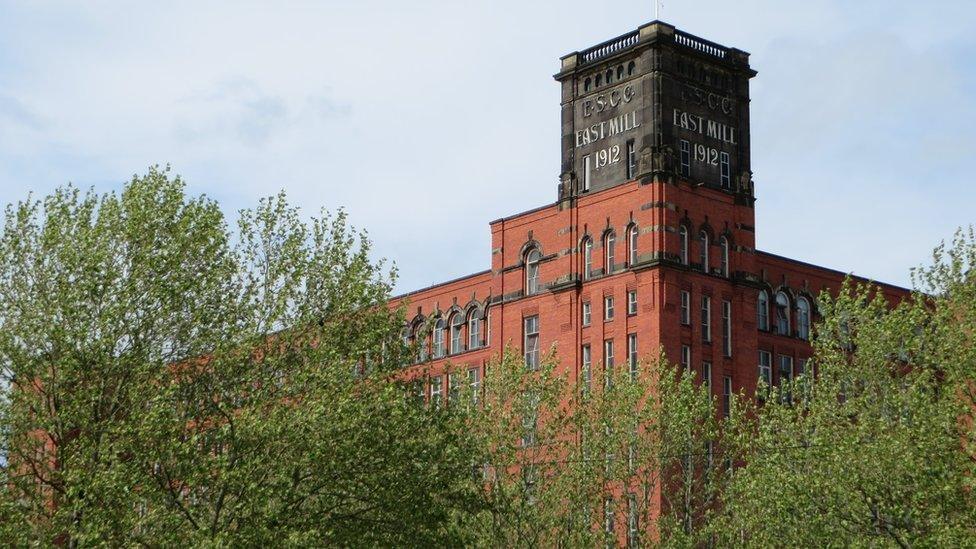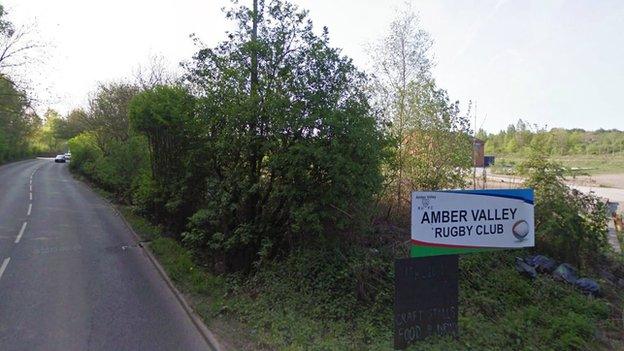Derwent Valley Mills Unesco site risks 'incremental destruction'
- Published

Campaigners say development would alter the look of the area
Fears a Unesco World Heritage site in Derbyshire risks "incremental" destruction have been raised after the government agreed homes could be built in its "buffer zone".
Approval was recently given for 118 homes at Whitehouse Farm, Belper Lane, near Derwent Valley Mills.
The local authority has written to Unesco to urge it to put the site on its "in danger" list.
Housing Secretary Robert Jenrick said there would be "very limited harm".
'Time travel'
In the letter, Labour leader of Amber Valley Borough Council Chris Emmas-Williams and deputy Ben Bellamy said they were "fearful" the government's decision would be seized upon as a precedent to allow the landscape to be "incrementally destroyed".
They added they had "no confidence" the government was fulfilling its commitment to Unesco to preserve and protect the Derwent Valley Mills World Heritage Site.
The council added it is considering taking legal action over the decision.
Unesco said it will be asking the UK government for more information about the plans.
The Derwent Valley Mills is considered the birthplace of the modern factory and a landscape of "high historical and technological interest", according to Unesco.
Buffer zones around world heritage sites are designated to give them additional protection.

Residents say walking through the valley is "like time travel"
Campaigners from the Save Belper Lane group said the development would alter the look of the historically-important area.
Clare Washbrook, from the group, said she feared the development could see the area being stripped of its World Heritage status.
The government argued as part of its approval that the houses would not be visible from Belper, which lies in the heritage site.
It added the new plans would meet demand in places to live and 30% of the homes will be affordable.

Industrial heritage

Cromford to Darley Abbey, along the River Derwent, was granted World Heritage status by Unesco, external in 2001
The Derwent Valley Mills are considered "the birthplace of the factory system"
The site includes Cromford Mills which was the world's first successful water-powered cotton spinning mill
The valley saw pioneering work by Richard Arkwright, Jedediah Strutt, and the Lombe brothers

Follow BBC East Midlands on Facebook, external, Twitter, external, or Instagram, external. Send your story ideas to eastmidsnews@bbc.co.uk, external.
- Published16 September 2014

- Published11 August 2014
